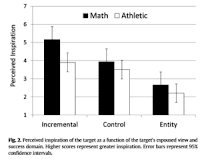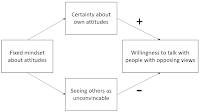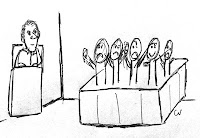Why do we bounce back from failure better when we have a growth mindset?

We know that we generally bounce back from failure better when we have a growth mindset than when we have a fixed mindset (Dweck, 1999). This has to do with the fact that we interpret failing differently in different mindsets and because of that we also feel and behave differently. In a growth mindset we view failure as a consequence of not having put in enough effort or not having used an effective strategy ( read more ).





